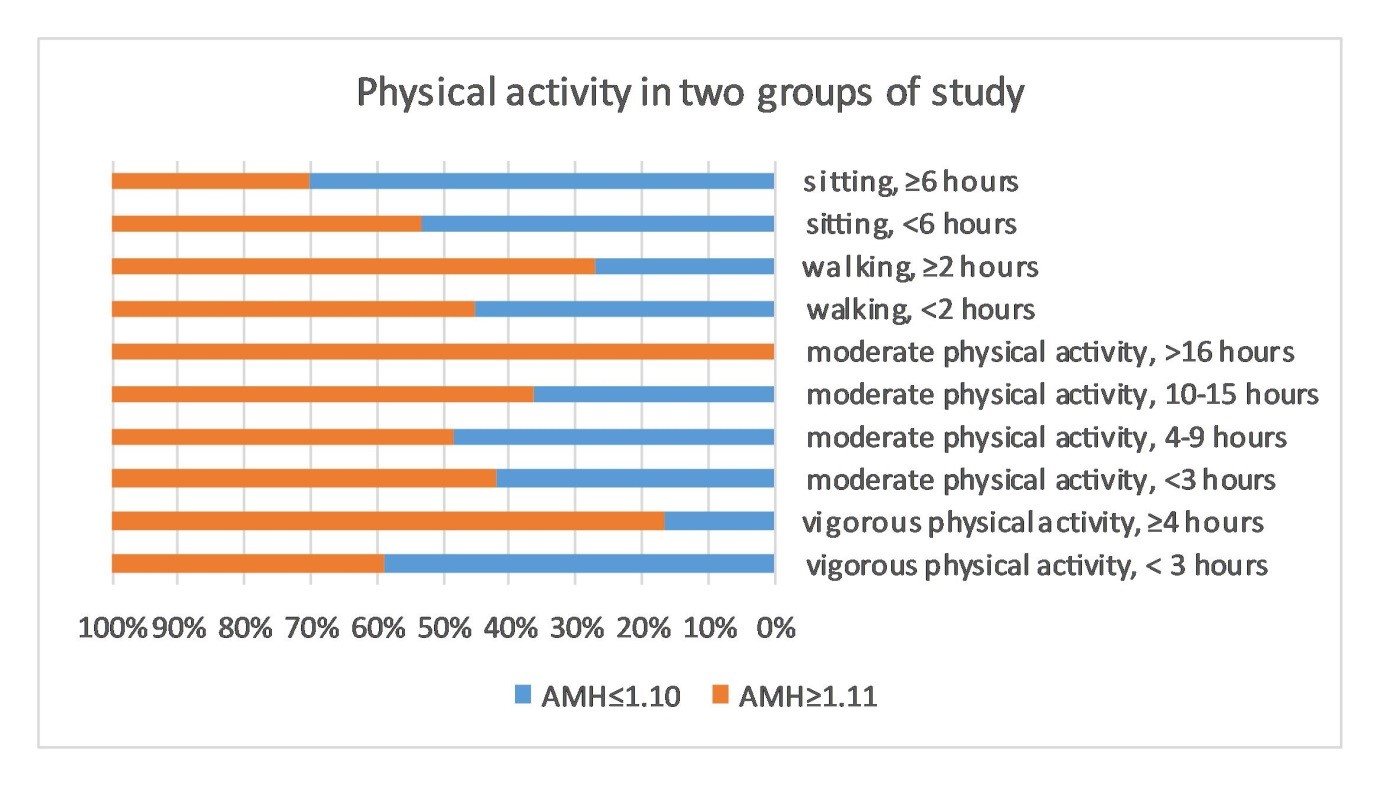Anti-Mullerian hormone level about physical activity and reproductive determinants in North Iranian infertile women
AMH and physical activity
Abstract
Introduction: Female infertility is responsible for approximately half of all cases of infertility and one of the causes of infertility in women is related to ovarian disorders. Anti-Müllerian Hormone (AMH) is one of the clinical markers of ovarian reserve. Physical activity may affect the reproductive system and AMH concentration in serum. We aim to evaluate the relationship between physical activity and reproductive determining fertility and anti-mullerin hormone (AMH) in infertile women in northern Iran.
Materials and methods: This cross-sectional study included 234 women aged 18–45 referred to the Infertility Clinic of the Al-Zahra Hospital, Rasht, Iran. The reproductive characteristics and the amount of physical activity of the patients were recorded. Exclusion criteria included menopause, cancer, underlying endocrine diseases, use of hormonal drugs, diagnosis of PCOS based on Rotterdam criteria, any ovarian and uterine surgery, and endometriosis.
Results: As expected, we observed significantly lower AMH concentrations in older participants. There was no association between reproductive determinants and AMH level (P> 0.05). We observed lack of physical activity as well as vigorous physical activity, is associated with lower AMH concentration (P= 0.025, and P= 0.039 respectively).
Conclusion: In this study, AMH levels appear to be significantly lower in patients with a lack of physical activity as well as vigorous physical activity. The results of this study showed that by improving lifestyle, including the appropriate amount of physical activity, it may be possible to improve the results of infertility treatments. However, a larger study is needed to verify the findings of this study.

Additional Files
Published
How to Cite
License
Copyright (c) 2023 Roya KaboodMehri, Seyedeh Hajar Sharami, Forozan Milani, Nasrin Ghanami Gashti, Mahboubeh Eftekhari , Ali Aghazadeh

This work is licensed under a Creative Commons Attribution-NonCommercial 4.0 International License.
